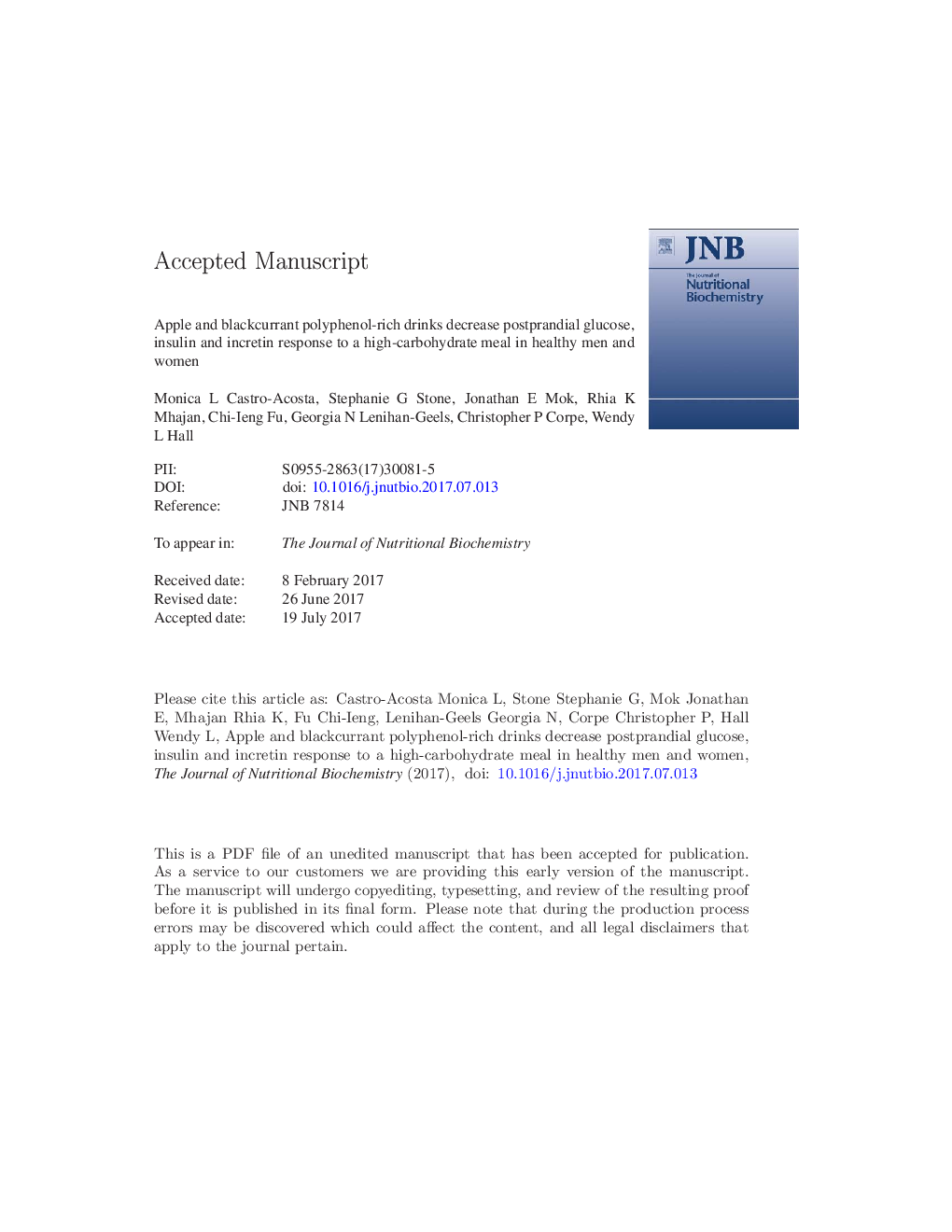| Article ID | Journal | Published Year | Pages | File Type |
|---|---|---|---|---|
| 8336465 | The Journal of Nutritional Biochemistry | 2017 | 43 Pages |
Abstract
Postprandial glycemic responses to meals are inhibited by polyphenol-rich plant foods. Combinations of polyphenols may be particularly effective through complementary mechanisms. A randomized, controlled, double-blinded cross-over trial was conducted in healthy volunteers to test the hypothesis that apple and blackcurrant polyphenol-rich drinks would reduce postprandial blood glucose concentrations. Secondary outcomes included insulin and glucose-dependent insulinotropic polypeptide (GIP) secretion. Twenty men (mean age 26 y, SD 8) and 5 postmenopausal women (mean age 57 y, SD 3) consumed a placebo drink (CON) and 2 polyphenol-rich drinks containing fruit extracts: either 1200 mg apple polyphenols (AE), or 600 mg apple polyphenols+600 mg blackcurrant anthocyanins (AE+BE), in random order with a starch and sucrose meal. Incremental areas under the curve (iAUC) for plasma glucose concentrations were lower following AE+BE over 0-30 and 0-120 min compared with CON; mean differences (95% CI) â32 mmol/L·min (â41, â22, P<.0005) and â52 mmol/L min (â94, â9, P<.05), respectively. AE significantly reduced iAUC 0-30 min (mean difference â26 mmol/L min, â35, â18, P<.0005) compared with CON, but the difference over 120 min was not significant. Postprandial insulin, C-peptide and GIP concentrations were significantly reduced relative to CON. A dose response inhibition of glucose transport was demonstrated in Caco-2 cells, including total and GLUT-mediated transport, and SGLT1-mediated glucose transport was strongly inhibited at all doses in Xenopus oocytes, following 10 min incubation with 0.125-4 mg apple polyphenols/ml. In conclusion, ingestion of apple and blackcurrant polyphenols decreased postprandial glycemia, which may be partly related to inhibition of intestinal glucose transport.
Related Topics
Life Sciences
Biochemistry, Genetics and Molecular Biology
Biochemistry
Authors
Monica L. Castro-Acosta, Stephanie G. Stone, Jonathan E. Mok, Rhia K. Mhajan, Chi-Ieng Fu, Georgia N. Lenihan-Geels, Christopher P. Corpe, Wendy L. Hall,
